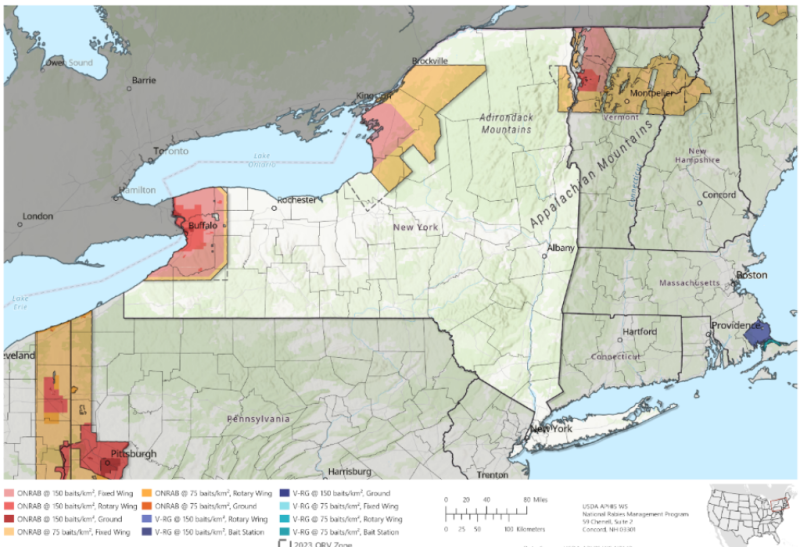GO Health announces final rabies vaccination clinic for 2024, scheduled for October 10
Press Release:
The Genesee and Orleans County Health Departments (GO Health) are offering their final 2024 free drive-thru rabies vaccination clinics in October. Funding for the rabies clinics are provided by the New York State Department of Health.
- The Genesee County Rabies Vaccination Clinic will be held on Thursday, October 10 from 4 - 6 p.m. at the Genesee County Fairgrounds (5056
East Main Street, Batavia)- The Orleans County Rabies Vaccination Clinic will be held on Saturday, October 19 from 9 - 11:30 a.m. at the Orleans County Fairgrounds (12690 State Route 31, Albion)
Vaccinations are free for dogs, cats, and ferrets. Animals must be at least 3 months old. Each animal must be leashed or crated and accompanied by an adult who can control the animal. Limit 4 pets per car maximum.
“We encourage all Genesee and Orleans County residents to take advantage of our last rabies immunization clinics of 2024 and ensure their pets are protected against rabies,” stated Paul Pettit, Public Health Director for GO Health. “Rabies continues to be a serious public health concern in both counties and is a preventable viral disease.”
To prevent the spread of rabies, the health department reminds residents to take the following precautions:
- Keep your pets up-to-date on their rabies vaccinations.
- Obey leash laws. Keep your pets under direct supervision and on a leash so they do not come in contact with wild or stray animals. If an animal bites your pet, seek veterinary assistance for the animal immediately and contact the health department.
- Avoid contact with wild or stray animals. Do not handle, feed, touch, or attract wildlife (raccoons, skunks, bats, bunnies, rabbits, and foxes) or stray dogs and cats.
- Never adopt wild animals or bring them into your home.
- Prevent bats from entering living quarters. If you find a bat in your home, safely capture it and call the health department. DO NOT release it! For a video on how to safely capture a bat, visit https://www.youtube.com/watch?v=puP8qbATPKg
- Call your local animal control agency to remove any stray animals from your neighborhood or if you see an animal showing signs of rabies. Signs of rabies in animals may include aggression, excessive drool or saliva, confusion, hair loss, and loss of movement or function.
For more information about GO Health Programs and services, visit GOHealthNY.org or contact your local health department at:
- Genesee County: 585-344-2580 ext. 5555
- Orleans County: 585-589-3278
Follow GO Health on Facebook, Instagram, and X at GOHealthNY.

